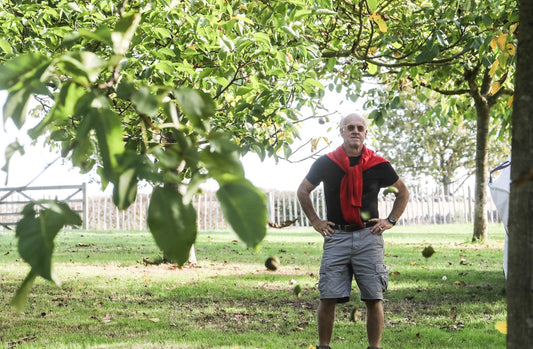History of Walnuts: From Ancient Uses to Modern Applications
Historically, walnuts have been used for a variety of purposes, ranging from food and medicine to dye and woodworking. Here are some of the historical uses of walnuts:
Food: Walnuts have been a dietary staple across cultures for centuries. From ancient times to the present day, they've been enjoyed raw, roasted, or as a delightful addition to salads, desserts, bread, and pastries.
Medicine: Traditional medicine systems like Ayurveda and Traditional Chinese Medicine have long recognised walnuts for their potential health benefits. Rich in antioxidants and omega-3 fatty acids, walnuts may aid digestion, boost energy, and support overall well-being.
Dye: Did you know walnut hulls contain a natural dye? For generations, this dye has been used to colour textiles, leather, and wood, adding rich hues of brown and black to various materials.
Woodworking: Renowned for its durability and exquisite grain, walnut wood is highly prized in woodworking. Used for crafting furniture, flooring, and cabinetry, it's also resistant to decay and insect damage, making it a top choice for both indoor and outdoor projects.
Oil: Extracted from the nuts, walnut oil is a versatile ingredient. Its rich, nutty flavour enhances a wide range of dishes, while its moisturising and antioxidant properties make it a popular choice in cosmetics and traditional medicine.
Hungry for more? Read on to discover the origins of the humble walnut.
The meaning of the name"walnut": The term "walnut" traces back to Old English, where "wealhhnutu" meant "foreign nut." Likely introduced to England from distant lands, the walnut tree has left an indelible mark on culinary and cultural landscapes.
The origins of walnuts: Journeying from Central Asia to regions spanning the Balkans to China, walnuts have a storied past. Cultivated for thousands of years, they've provided sustenance and resources to countless civilisations.
Walnuts have played a significant role in human history and continue to do so today.




